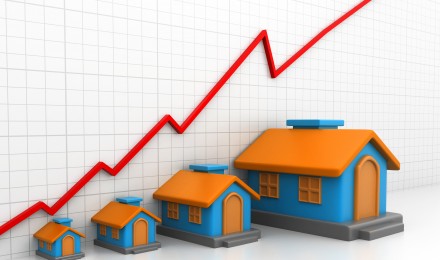The housing market has been getting a lot of attention lately. Housing prices are up significantly, new homes are being built at an increased pace, and the market just seems to be getting better and better. While on the surface it looks like the economy is picking up because the housing market is picking up. But is there a silver lining? While housing prices on the market are moving, they are moving because Wall Street has come in and started to buy them up.
The Blackstone Group is one of the major buyers. They already own 26,000 homes, and have plans to acquire even more. Likewise, Colony Capital owns 10,000 homes and they are spending $250 Million per month buying more. These are just two of the biggest investors in the housing market, there are many more out there.
There is a lot of real estate available. And while it may seem to make sense that a company invests in commercial real estate that is not the target of these investors. Instead, they are finding distressed homes, and homes with depressed values. They buy them fix them, and then rent them out. But residential homes are not all they are snatching up. They are purchasing a lot of bare land, and having homes built on that land (or sitting on it and letting the value increase). Many homebuilders have seen a surge in their stock prices because of this.
When an individual buys a house, they are looking for something for personal use. But when a company buys houses they are looking for something that will generate an income for a little while. As these homes are bringing in rental income, the value of the real estate is increasing. When the price has gone up enough, the company will flip the house for a nice profit. When this happens, will we see another housing bubble like the last one? The one that led us into the Great Recession.
Because these companies have a lot of money, they are able to swoop in and pay cash for these homes. Often, the cash offer beats out the others because cash is immediate, even with pre-approval a loan takes time. With all this cash, the companies buying the real estate can also open property management companies to run the rentals. In fact, the Blackstone Group has already opened 14 offices across the country for the sole purpose of managing their rentals.
Big hedge funds, private equity companies, and other Wall Street giants have been buying real estate for years. This is nothing new. But with the market still depressed, these companies have stepped it up and started buying in bulk. They are creating a demand for houses and that demand is bringing up the prices and values of homes. But when the values go up enough, and they dump the houses, will the values drop again? It is good that these companies are helping to drive the economy, but they are creating an artificial market. Will the housing market crash when they pull out? Without some sort of regulation, these companies will keep exploiting depressed markets, but are more laws what the country (and economy) really needs? Are these companies helping the economy, or are they giving a false sense of hope?
The housing market has been getting a lot of attention lately. Housing prices are up significantly, new homes are being built at an increased pace, and the market just seems to be getting better and better. While on the surface it looks like the economy is picking up because the housing market is picking up. But is there a silver lining? While housing prices on the market are moving, they are moving because Wall Street has come in and started to buy them up.
The Blackstone Group is one of the major buyers. They already own 26,000 homes, and have plans to acquire even more. Likewise, Colony Capital owns 10,000 homes and they are spending $250 Million per month buying more. These are just two of the biggest investors in the housing market, there are many more out there.
There is a lot of real estate available. And while it may seem to make sense that a company invests in commercial real estate that is not the target of these investors. Instead, they are finding distressed homes, and homes with depressed values. They buy them fix them, and then rent them out. But residential homes are not all they are snatching up. They are purchasing a lot of bare land, and having homes built on that land (or sitting on it and letting the value increase). Many homebuilders have seen a surge in their stock prices because of this.
When an individual buys a house, they are looking for something for personal use. But when a company buys houses they are looking for something that will generate an income for a little while. As these homes are bringing in rental income, the value of the real estate is increasing. When the price has gone up enough, the company will flip the house for a nice profit. When this happens, will we see another housing bubble like the last one? The one that led us into the Great Recession.
Because these companies have a lot of money, they are able to swoop in and pay cash for these homes. Often, the cash offer beats out the others because cash is immediate, even with pre-approval a loan takes time. With all this cash, the companies buying the real estate can also open property management companies to run the rentals. In fact, the Blackstone Group has already opened 14 offices across the country for the sole purpose of managing their rentals.
Big hedge funds, private equity companies, and other Wall Street giants have been buying real estate for years. This is nothing new. But with the market still depressed, these companies have stepped it up and started buying in bulk. They are creating a demand for houses and that demand is bringing up the prices and values of homes. But when the values go up enough, and they dump the houses, will the values drop again? It is good that these companies are helping to drive the economy, but they are creating an artificial market. Will the housing market crash when they pull out? Without some sort of regulation, these companies will keep exploiting depressed markets, but are more laws what the country (and economy) really needs? Are these companies helping the economy, or are they giving a false sense of hope?







